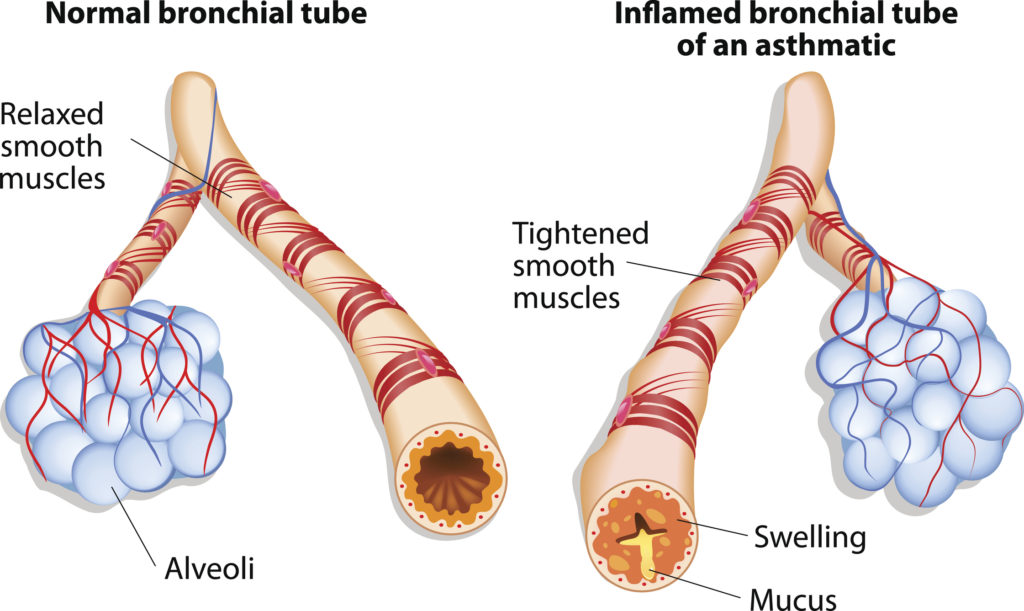
Patients with asthma generally have a routine to control the illness. Their routines include identification and control of triggers, the taking of inhaled or oral controller medication and, if symptoms develop, the use of a quick-release inhaler.
For many people, with and without asthma, this is the most commonly recognized treatment. But what about those patients with more severe symptoms, or more frequent attacks? Is there a solution that doesn’t require a limitation of activities or overuse of an inhaler? The short answer is, “Yes, there is?”
In recent years, advances in medicine have seen the creation of biologic medication. What is a biologic? It is a medication made from the cells of a living organism that has been modified to target specific molecules in humans.
“Biologics work to disrupt the pathways that lead to inflammation that causes asthma symptoms says Dr. Michael Lenoir, nationally recognized allergy and asthma expert. They are particularly effective with severe intractable asthma that is dominated by a cell called the eosinophil.”
The type of patients who could benefit from biologic medication are those with moderate to severe symptoms that are poorly controlled despite the use of standard medication.
Patients would report the symptoms despite the regular and compliant use of other controller medications. Those symptoms include:
- Frequent coughing wheezing, or shortness of breath
- Waking up at night with shortness of breath
- Requires the use of an inhaler several times a day or week
- Recurrent emergency room visits and/or hospital admissions
- Need for oral steroids for exacerbations

Reducing the frequency of asthma events, symptoms, dosage of other controller medication, and overall quality of life improvements are a few reasons for asthma patients to inquire about adding a biologic to their medication regime.
The treatment is a subcutaneous injection (under the skin) or intravenous infusion (into the veins) and usually administered in a doctor’s office, however there is one where the injection can be done at home.
There are five biologics approved for asthma and each treats asthma in a different way. Some have been approved for children, while others are designed specifically for adults.
A series of screening tests would be administered to determine which biologic would be best for treatment. It is important to provide as much feedback as possible to assess for side effects.
Asthma is a condition that disproportionately affects Black Americans. “Black Americans are three times more likely to die from asthma with Black women having the highest mortality rate in the United States.
In order to combat this health inequity, newer, more aggressive treatments must be explored,” says Dr. Lenoir. Biologics may be just what Black Americans need to overcome this disparity as the medical community continues to work towards a cure.








